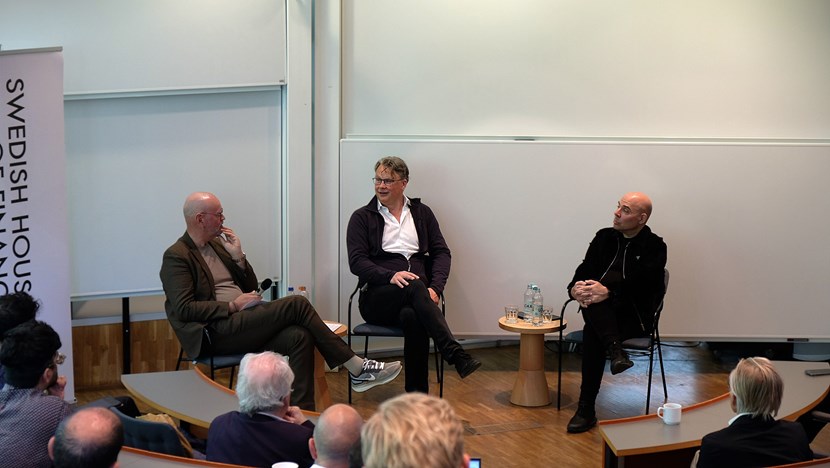Investing in Music Rights: A New Asset Class
maj. 22, 2024
The music industry has undergone significant transformations over the past two decades, evolving from a sector plagued by piracy and declining revenues to one experiencing remarkable growth and renewed interest from investors.

In a recent seminar, Merck Mercuriadis, founder of Hipgnosis Song Management, Willard Ahdritz, founder of Kobalt Music Group, and SHoF researcher Anders Anderson discuss how the rise of streaming services and new technology has created new opportunities for investing in music rights, establishing songs as a lucrative asset class. Here is a summary of the discussion:
The Decline and Revival of the Music Industry
Around the year 2000, the music industry faced a dramatic decline due to the digitization and piracy of music. This period, described as "16 years of pain," saw revenues plummet, causing widespread concern among industry stakeholders. However, the advent of streaming services such as Spotify marked a turning point. These platforms transformed music consumption, making it accessible and affordable to a global audience, and in doing so, revitalized the industry. Today, the music industry is witnessing double-digit growth, attracting considerable interest from institutional investors.
“(Spotify’s) ability to take music from being something that very few people paid for to being something that everyone pays for—and the data that comes with it—is really what ultimately makes this so interesting,” said Mercuriadis.
Music Rights as an Asset Class
Mercuriadis, a veteran artist manager who has worked with icons like Elton John, Guns N' Roses, and Beyoncé, observed a significant discrepancy in how record companies and songwriters were compensated. Despite being the foundation of the music industry, songwriters were often the worst paid. This inequity inspired Merck to establish Hypnosis, a platform aimed at recognizing and fairly compensating songwriters by treating songs as valuable assets.
“There is no music industry at all, without songwriters being there first. There's no publishing industry, there’s no merchandise, there's no live promotions, etc. Everything begins with the songwriter writing the song, yet they are the worst paid people in the industry,” he said.
Songs, particularly those that have achieved extraordinary success and cultural significance, generate predictable and reliable income streams. These iconic tracks become ingrained in the fabric of society, offering long-term value. For example, songs like Journey's "Don't Stop Believing'" and Leonard Cohen's "Hallelujah" continue to generate substantial revenue decades after their release.
The Importance of Transparency and Data
A key challenge in the music industry has been the lack of transparency and efficiency in tracking and distributing royalties, the speakers said. Historically, songwriters had little visibility into how their works were being monetized, often relying on outdated and opaque accounting practices.
“Diane Warren used to receive ten-thousand-page statements that were taller than her at five foot seven, containing billions of microtransactions. She had a team of six people to comb through these statements and would often find $600,000 to $700,000 worth of income missing in any six-month period. It was a tremendously inefficient system,” Merck said.
Kobalt’s Ahdritz co-founded a platform that introduced transparency and efficiency, allowing songwriters to track their royalties in real-time. This move not only empowered songwriters but also attracted institutional investors by providing reliable data and reducing investment risk.
“We introduced transparency for everyone. Our clients kept their rights,” Ahdritz said.
Future Opportunities and Innovations
Innovations such as AI-driven licensing and new consumption models like immersive concerts and virtual reality experiences are set to redefine how music is monetized. For example, ABBA's successful avatar show "Voyage" in London illustrates the potential for new, engaging ways to consume music, providing additional revenue streams.
Moreover, the rise of health and wellness applications integrating music, such as Peloton, highlights the expanding market for music rights beyond traditional avenues. By 2025, it is projected that over 10% of total music industry revenue could come from such sectors, Ahdritz said.
